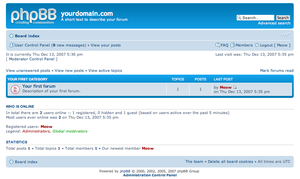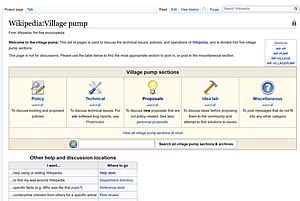An internet[1] forum is a digital platform crafted for communal discourse[2]. Stemming from electronic bulletin boards and computer-based conferencing systems, forums adopt a tree-like structure, featuring categories, sub-forums, and threads. These web-based platforms accommodate user-generated messages, organized into dialogue threads. Unlike instant messages in chat rooms, forum posts are typically more extensive and can be stored for later reference. While posting on forums usually necessitates user registration, reading these posts is generally unrestricted. Forums span a wide array of subjects, from technology to entertainment, cultivating a virtual community among participants. Key figures within a forum include administrators, responsible for technical aspects and appointment of moderators, and moderators, overseeing discussions and addressing user issues. Forums also showcase specific behavioral patterns, such as open debates, disputes, trolling, and spamming. Technological features vary from file attachments and emoticons to private messaging and forum subscriptions. Forums can potentially face legal actions for defamation and harm, with distinct attributes and cultural usage variations across geographical boundaries.
An Internet forum, or message board, is an online discussion site where people can hold conversations in the form of posted messages. They differ from chat rooms in that messages are often longer than one line of text, and are at least temporarily archived. Also, depending on the access level of a user or the forum set-up, a posted message might need to be approved by a moderator before it becomes publicly visible.



Forums have a specific set of jargon associated with them; for example, a single conversation is called a "thread", or topic.
A discussion forum is hierarchical or tree-like in structure; a forum can contain a number of subforums, each of which may have several topics. Within a forum's topic, each new discussion started is called a thread and can be replied to by as many people as they so wish.
Depending on the forum's settings, users can be anonymous or have to register with the forum and then subsequently log in to post messages. On most forums, users do not have to log in to read existing messages.
